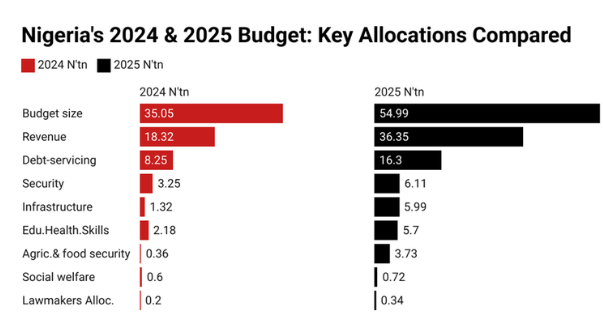Abuja, Nigeria – July, 2025 — Concerns are mounting over Nigeria’s inflated oil revenue projections, which experts and analysts have now linked to questionable constituency projects allegedly sponsored by some members of the National Assembly.
According to industry watchers and fiscal policy experts, the unrealistic benchmarks set for oil revenue in recent national budgets may have been deliberately engineered to accommodate inflated allocations for legislative pet projects — many of which have either not been executed or lack proper oversight and accountability.
Sources within budget monitoring circles allege that a significant portion of the budget padding has been justified using overestimated crude oil price benchmarks and exaggerated production figures, which do not align with actual market realities or Nigeria’s current output capacity.
“These bogus oil revenue projections serve as the fiscal cover for funneling public funds into phantom or duplicated constituency projects,” one senior analyst noted, adding that the practice undermines transparency, distorts fiscal planning, and burdens the economy.
A policy brief released by a civic tech organization revealed that several capital projects inserted into the 2024 and 2025 budgets lack clear documentation, location specifics, or executing agencies — raising red flags about the authenticity of such projects.
In response, civil society groups are calling on the Budget Office, the Ministry of Finance, and anti-corruption agencies to conduct thorough reviews of constituency project listings and to recalibrate oil revenue benchmarks based on more conservative and verifiable assumptions.
Meanwhile, the Nigerian Extractive Industries Transparency Initiative (NEITI) and other watchdog bodies have urged the federal government to align oil revenue forecasting with actual production realities, rather than allowing it to serve as a tool for political maneuvering.
The National Assembly has yet to issue a formal response to the allegations, but budgetary reform advocates insist that if Nigeria is to achieve fiscal discipline and economic stability, the practice of inflating oil revenues to justify unsupervised legislative spending must end.

